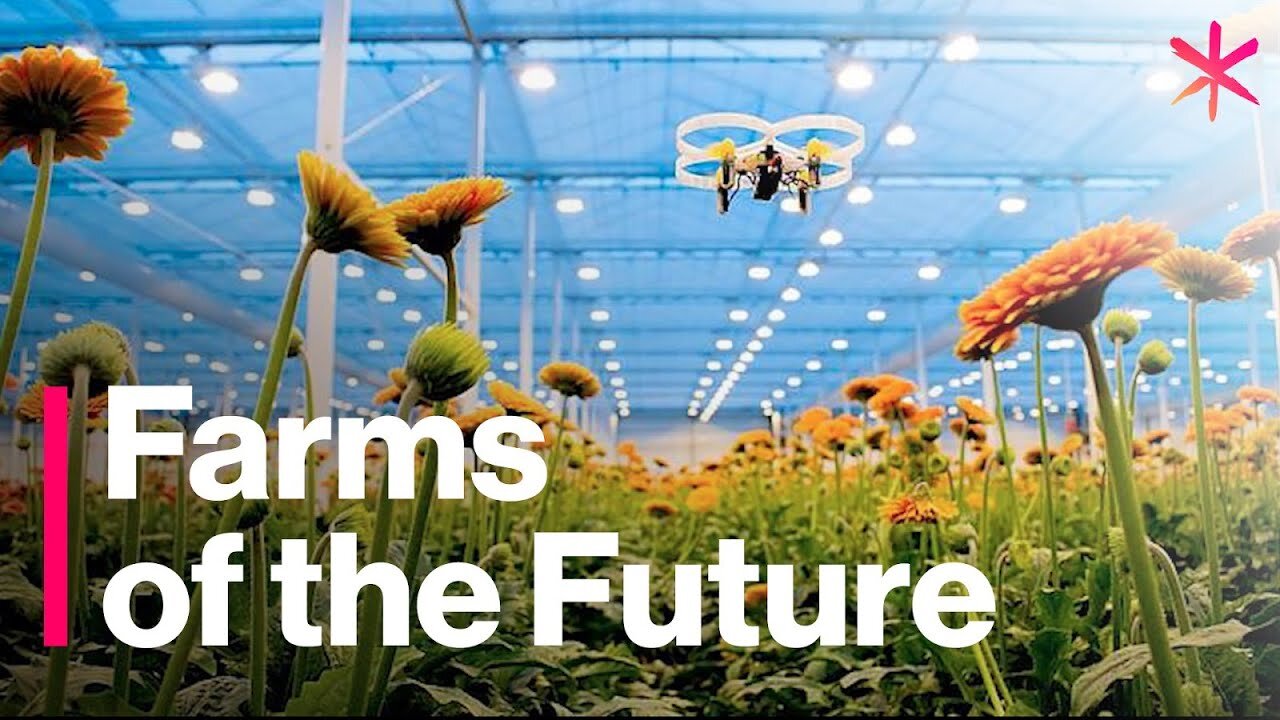Premium Only Content

The Futuristic Farms That Will Feed the World | Freethink | Future of Food
Amidst climate change, a growing population, and people consuming more of less sustainable food, how will we feed our future world? The answer may not be increasing resources--land, water, and employees--but rather improving production efficiency to create more sustainable farming of crops. The key question: How do we increase the amount of food we produce while using the same or fewer resources?
The Sustainable Development Roadmap from an Unexpected Superpower:
When it comes to scaling agricultural production sustainably, one small country has a very large impact. Bolstered by a national commitment to produce twice the amount of food with half the resources, the Netherlands has become the world’s #2 produce exporter. The close collaboration between the government, science organizations and the food industry have driven impressive innovation and an efficiency that’s unmatched anywhere else in the world.
On a normal open-field tomato farm, one could expect 4 kilograms of yield per square meter. In a high-tech greenhouse in the Netherlands, that number shoots up to 80 kilograms of yield per square meter, with 4X less water. That’s a 20X improvement on output! And it’s not just tomatoes--the Dutch are #1 in the world on producing chilis, green peppers, and cucumbers (measured by yield per square mile). With conservation and sustainable food as two of the most important global issues, could other countries copy their approach to help save the earth?
Sustainable Farming Practices Driven by AI
What is sustainability driven by? The technology behind these greenhouses allows for an extreme level of control over water, light, temperature, and CO2--all of which are finely tuned and optimized. Constant testing on countless variables is what drives these facilities and could be the future of our planet’s sustainable food systems. Tests can be as simple as comparing different hues of LEDs to increase tolerance against pests, or as advanced as a moth-killing drone.
In addition, eco friendly technology is simply getting better. More and more, efficient farming is becoming automated, using artificial intelligence to find the optimal conditions. By learning the behaviors of plants, climate computers can adjust conditions far better than a human.
Scaling Efficient Farming: It’s All About Knowledge Sharing
The Netherlands is not just thinking about the Netherlands. Besides leveraging technology in efficient ways, these innovators are exploring how to use their findings on a greater scale. For example, their greenhouses emulate climates across the world in order to optimize growth outside of the country. As they learn about what’s optimal in Columbia, for example, they can then transfer that knowledge and help build sustainable food systems across the earth. This level of big picture thinking could be a game-changer as we tackle global warming and climate change - one of society's greatest challenges in the coming years.
-
 UPCOMING
UPCOMING
The Mike Schwartz Show
6 hours agoTHE MIKE SCHWARTZ SHOW Evening Edition 08-27-2025
96 -
 1:34:24
1:34:24
Redacted News
3 hours agoLIVE: Minnesota School Shooter’s Shocking Motive Revealed – Plus Trump Targets Soros w AG Ken Paxton
122K120 -
 4:55:15
4:55:15
StoneMountain64
6 hours agoHUNTING FOR THE FIRST WIN BACK ON WARZONE
58.6K2 -
 1:09:06
1:09:06
The Officer Tatum
3 hours agoBREAKING: Shooter IDENTIFIED TR*NS , Cracker Barrel CAVES To Pressure + MORE | EP 162
37K56 -
 53:47
53:47
Matt Kohrs
4 hours agoLIVE! Nvidia Earnings Call || NVDA Stock Reaction
31.3K1 -
 32:25
32:25
Tudor Dixon
2 hours agoKarol Markowicz on Freedom, Immigration, and Saving the American Dream | The Tudor Dixon Podcast
6.77K -
 2:03:25
2:03:25
The Quartering
6 hours agoFlag Burning, Free Speech, Church Attack & More With Andrew Wilson
203K303 -
 3:02:42
3:02:42
The Robert Scott Bell Show
20 hours agoDr. Peter McCullough, Vaccines: Mythology, Ideology, and Reality, Dr. Dan Sullivan, Chiropractic - The RSB Show 8-27-25
27.9K -
 1:21:03
1:21:03
Darkhorse Podcast
5 hours agoFreedom, Tyranny, and Childhood Lost: The 291st Evolutionary Lens w/ Bret Weinstein & Heather Heying
41.6K17 -
 LIVE
LIVE
LFA TV
12 hours agoLFA TV ALL DAY STREAM - WEDNESDAY 8/27/25
1,196 watching